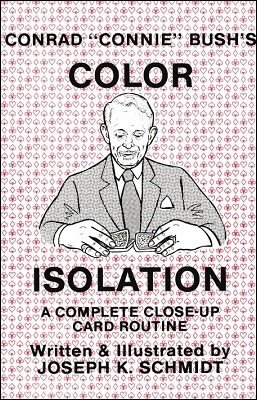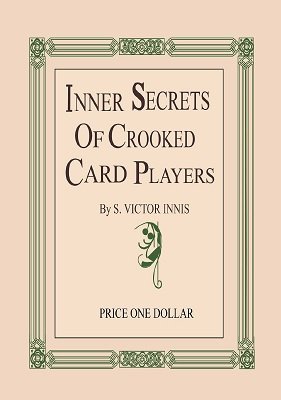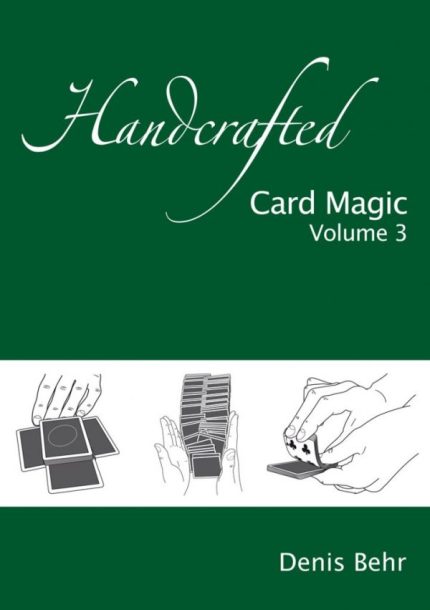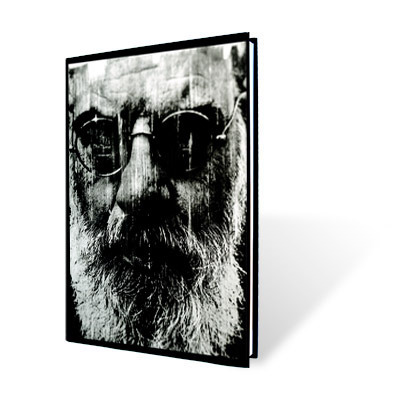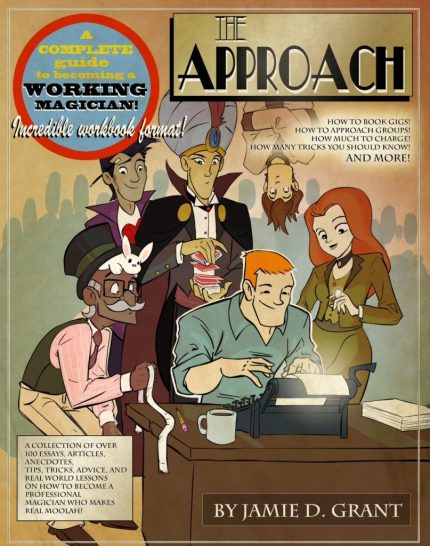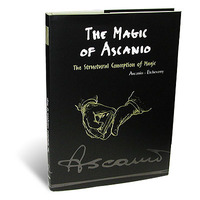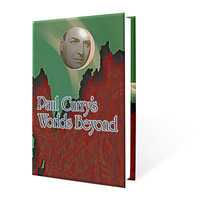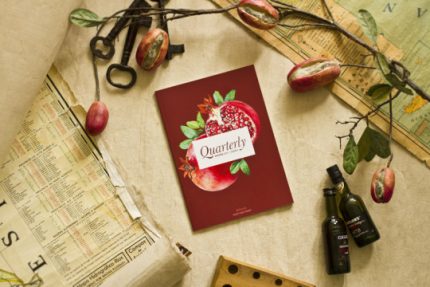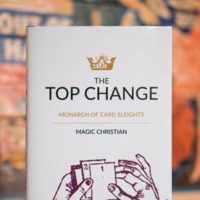What is Color Isolation? It’s a complete card act where the two colors of the deck — red and black — continually separate, each time under quite different and more mysterious conditions. The deck is handled and shuffled by the spectator throughout, yet the colors seem to instantly obey the magician’s every whim.
From the performer’s standpoint, Color Isolation is an interlocking series of effects, each building on the next. You can borrow a deck, have it thoroughly shuffled by the spectator and proceed. After shuffling the deck, the spectator simply cuts off a portion and counts them face down. Immediately you seem to tell the spectator how many reds and blacks he holds.
The spectator shuffles again and deals cards onto indicator cards, only to discover he’s separated the dealt portion into reds and blacks! Sure, it’s a quickie version of Out of this World, but what a version!
Apparently demonstrating how it works, you show that the reds and blacks unfailingly separate no matter how much they are moved around with a quick and clearcut version of Follow the Leader that is interlinked beautifully with the theme of the routine.
The spectator shuffles again, and yet you produce red and black Aces as you move into the finale: Placing aside a written prediction, you have the spectator shuffle and reshuffle the deck. Separating the deck into three piles, the spectator opens the prediction to find you have predicted exactly the number of reds and blacks in the selected pile. But the climax comes when the remaining two piles are turned face up . . . once again, the deck has separated into reds and blacks!
The methods are subtle, full of new twists and turns, and flow from one sequence to the next. Unusual is the fact that this can be done almost as a self-working routine, or you can put in as much “heavy work” as you wish. Connie Bush’s Color Isolation is a highly entertaining sequence with vast audience appeal — no cards are selected and everything seems fair at all points. This is a finely routined example of what card magic should be.
1st edition 1988, 33 pages; PDF 33 pages.
word count: 7757 which is equivalent to 31 standard pages of text


